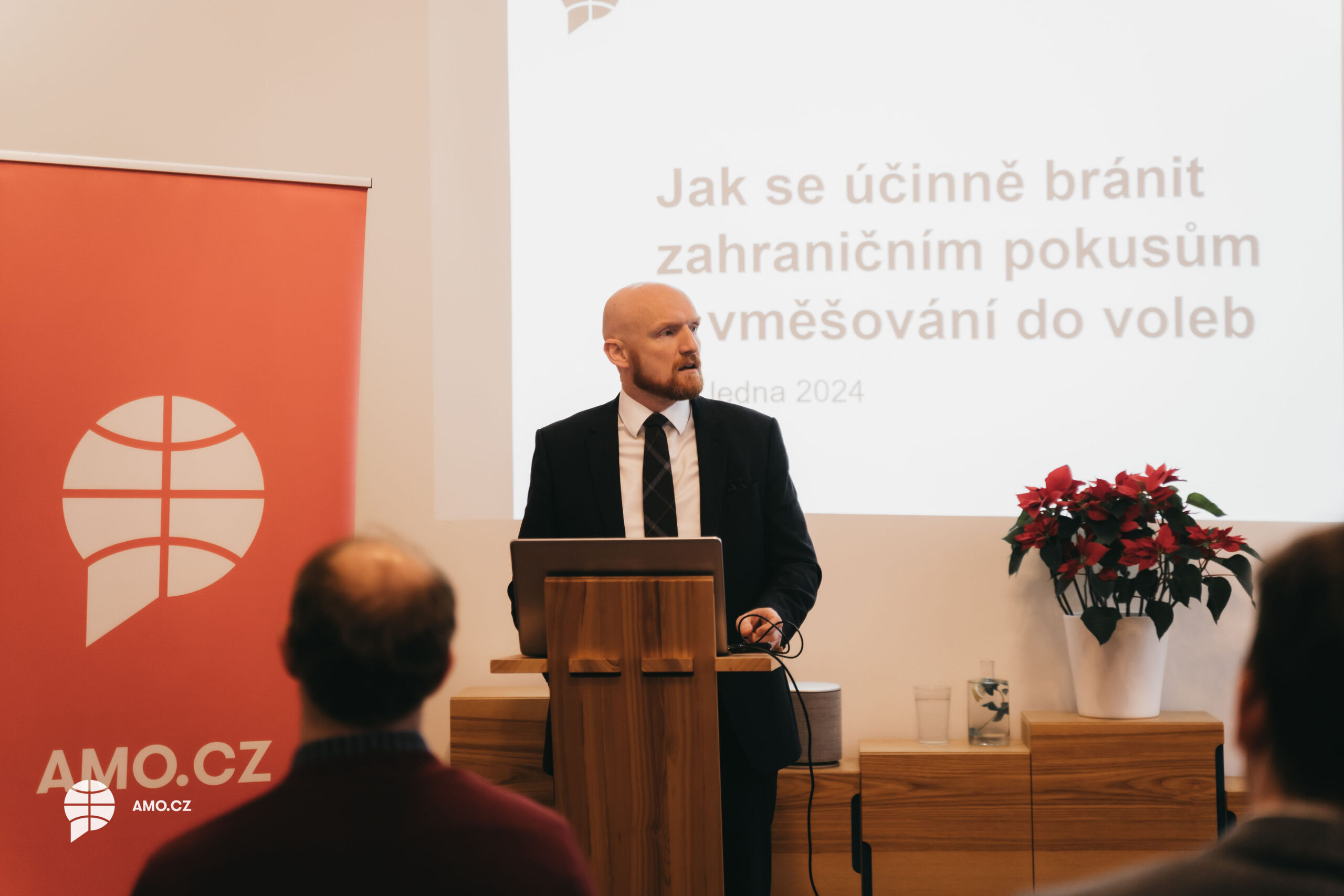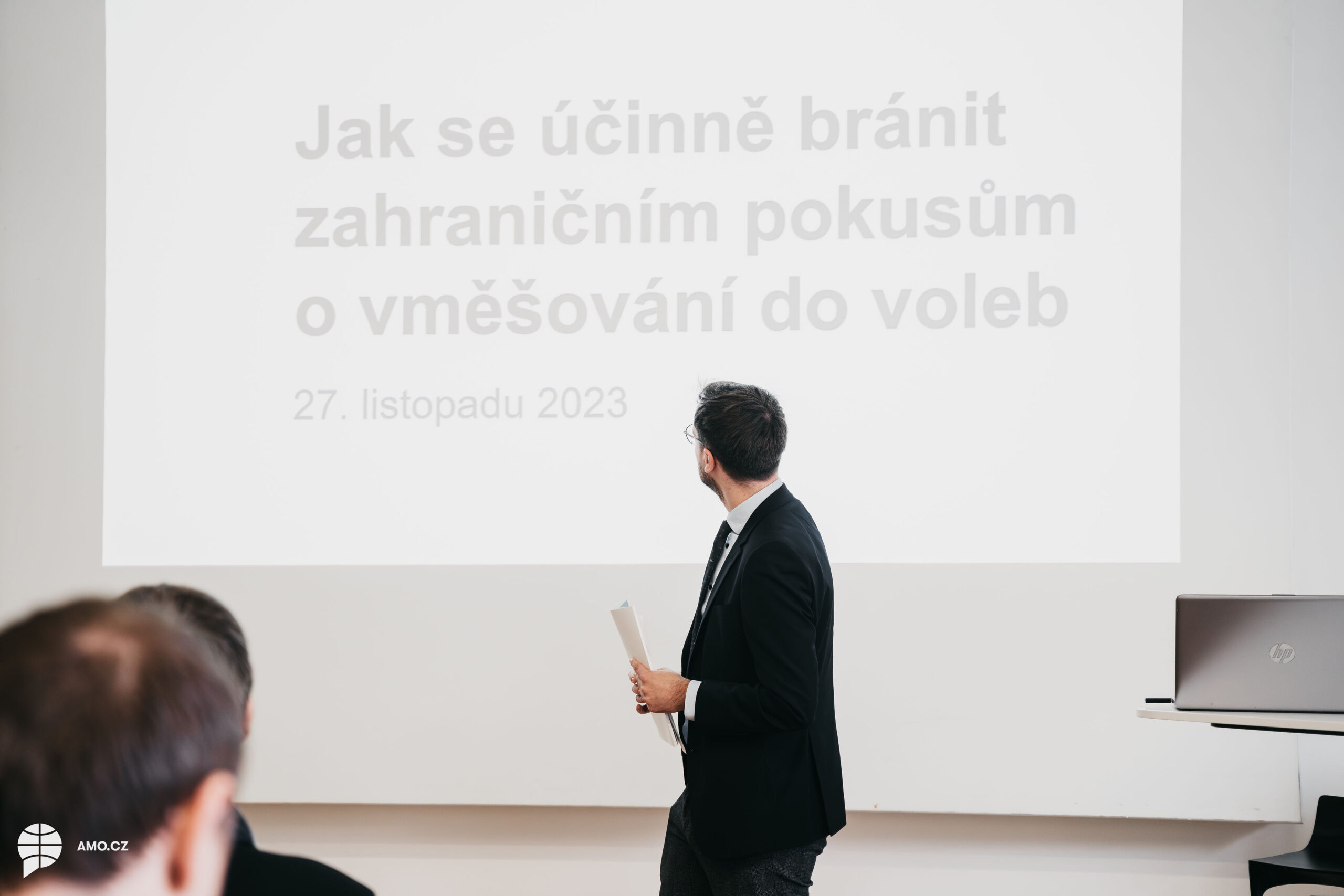Relations Between Czech Political and Business Elites With Links to China

The MapInfluenCE project has published a new interactive map depicting the intricate relationships between key Czech politicians and businessmen with links to China or China policy.
The interactive map is an updated version of the original analysis, published in 2018 together with a study of agenda-setting on China in Czech (and other Central European countries’) discourse. Considering the dynamic situation over the past few years and the dawning of a new political reality after the October 2021 elections, an update to the interactive map to reflect the latest information is of significant value.
The latest map is based solely on information from publicly available sources, including business registers and media reports. It displays connections based upon party membership, business activities past and present, as well as personal links, and more.
Apart from depicting individuals with links to China, the diagram includes selected personalities connected via key nodes (e.g. advisors to key politicians or domestic actors linked to business with links to China are included). The map does not seek to assess individual politicians or institutions and their behavior towards China, but rather serves as a visual aid in understanding connections between important actors, in politics and business, on China issues. The authors stress that the existence of a personal or professional connection does not directly imply ongoing cooperation between the actors or undue influence.
The October 2021 elections have changed the balance of power in the Czech Chamber of Deputies. ČSSD (Social Democrats), one of the key nodes according to the map, did not pass the electoral threshold and lost all of its mandates in the legislative body. Likewise, KSČM (Communist Party) is also departing the Chamber of Deputies for the first time in modern Czech history. Based upon the electoral outcome, the center-right coalition SPOLU and the center-left coalition of Pirates and Mayors are set to form the new government. On China, the new government appears set to assume a critical stance, including bolstering cooperation with Taiwan, strengthening a focus on human rights in foreign policy or excluding China from strategic industries. Still, actual policy implementation remains to be seen.
How to use the interactive map: We recommend opening the map in a separate window. You can use the search function in the upper right corner. After clicking on an actor, his or her bio and links to other actors will appear on the left. You can also explore a particular connection by clicking on the “bullseye” focus function on the right. If the connections are not visible, you can use the arrows below and above the bullseye.
For comments and suggestions on the map you can contact Dr. Ivana Karásková at ivana.karaskova@amo.cz.
Last update: February 9, 2022
We can easily trace from the map that the key nodes from which ties spread represent a few (political) entrepreneurs and a number of institutions. The Social Democrats (ČSSD) deserve special attention within this network, as they have become sort of a “breeding center” for the politicians and entrepreneurs active in promoting China-friendly policies since the term of former Prime Minister Bohuslav Sobotka (2014-2017).
This group includes President Miloš Zeman (Chairman of ČSSD between 1993 and 2001) who has been the key supporter of closer relations with China and has visited the country five times during his tenure as president. Another example is Jan Kohout, a career diplomat turned Social Democratic politician who became Zeman’s advisor on China in 2014 and the President of the New Silk Road Institute Prague (currently in liquidation) only a year later. Kohout was also the first president of the Czech China Chamber of Cooperation, the most prominent organization in promoting ties with China. Since May 2021, Kohout has served as a deputy to foreign minister Jakub Kulhánek, another ČSSD politician who previously worked as an external consultant for CEFC Europe, a subsidiary of the now-defunct CEFC China Energy conglomerate.
Another influential actor is Jan Birke, a former Director of Jiří Paroubek’s Prime Minister cabinet, ČSSD MP as well as the leader of the Social Democrats’ Regional Committee in the Hradec Králové Region. In his role as a mayor of the town of Náchod, Birke has spearheaded cooperation with Chinese cities of Kaifeng and Jinhua.
Birke’s ties are not limited to the political domain – in 2010 he helped the PPF Group get a license for their Home Credit company in China. Since 2011, Birke has been active in the Czech China Chamber of Cooperation in various positions.
Birke’s former MP Assistant Tomáš Bůzek has links to most of the organizations connected with the China-friendly policy in the Czech Republic as well. This includes the Czech China Chamber of Cooperation and CEFC, where he worked as a spokesperson and member of the Board of Directors.
Other examples of ČSSD politicians include the late František Čuba, a former senator who supported the launch of the Czech-Slovak-Chinese Chamber in the Senate and worked as an advisor to President Zeman. Political support for the launch of Czech-Slovak-Chinese Chamber was also given by ČSSD politician Zdeněk Škromach in his role as a Vice-President of the Senate at the time.
Jaroslav Tvrdík became the epitome for a new breed of a political entrepreneur. Rising from a background as a career military officer, he quickly became an influential member of ČSSD after 2001. Since leaving military services, he has held several roles ranging from Defense Minister to election manager to the party chairman’s advisor. In 2014 he took the helm of the Czech China Chamber of Cooperation, and in 2015, he became a Deputy Chairman of the Board of Directors at CEFC, which gradually became one the best-known business groups representing Chinese investment in the Czech Republic. CEFC’s chairman Ye Jianming even became a special advisor to president Zeman.
CEFC also invested in Empresa Media and Médea, owned by Jaromír Soukup. Soukup, who owns TV Barrandov where he himself, rather uncritically, presented the program “Week with the President”, is also a member of the advisory body of Kohout’s New Silk Road Institute Prague.
Tvrdík also brought other former high-profile Czech politicians into the CEFC fold. This included Štefan Füle, former Czech Minister of European Affairs and Tvrdík’s deputy at the Ministry of Defense, ambassador of the Czech Republic to NATO, and European Commissioner for Enlargement, who acted as a member of the Supervisory Board of the company. Marcela Hrdá followed a similar path rising from her previous role as a Director for Transformation of Czech Airlines (when, between 2003 and 2006, Tvrdík was the President), Chairwoman of the Board of Directors of Empresa Media and also an adviser to Michal Chovanec (Minister of Defense under Bohuslav Sobotka until December 2017).
In 2018, the CEFC company in the Czech Republic was acquired in liquidation by Chinese state-owned company CITIC, with Tvrdík assuming a position on the CITIC board. Moreover, Tvrdík has become the chair of the board of Slavia Praha football club. Tvrdík’s story might end here, as an account of an able political and economic operative who leveraged a unique opportunity in the new international climate to his full advantage. Yet, this is only a part of the more complex sphere of influence of economic actors resulting in a reorientation of the foreign policy, a reorientation blessed by the most influential politicians in the country (namely, President Miloš Zeman).
In 2010, the PPF Group – with formal headquarters in the Netherlands but owned by the late Czech billionaire Petr Kellner – hired Tvrdík to lobby for the firm’s interests in China. Particularly, he was instructed to act on behalf of its retail banking branch, Home Credit. The company has been present in China since 2007, but only received the local license to provide customer credit services in 2010. Despite this breakthrough, the final goal of receiving a nation-wide license for this business took further four years to be realized. It was in this period that the Czech Republic’s shift towards China was initiated. The link between these two processes remains – in view of the confidentiality of the key information behind them – hypothetical, but it is necessary to at least recognize and allow for their functional connection.
While the role of ČSSD has been peculiar, it has not been the only party with individuals linked to China. In his role as the chairman of KSČM, Vojtěch Filip was one of the key liaisons for Beijing and specifically the Chinese Communist Party in its dealings. Members of the ODS also pop up under analysis, such as the former ODS Prime Minister Petr Nečas. The former Prime Minister made the first move towards normalizing the relationship with China in 2012, even before ČSSD rose to power. Since leaving his post, Nečas has been involved in business lobbying and has become a member of the advisory board of the New Silk Road Institute Prague. Another prominent ODS politician, Jan Zahradil, was more active on the European level, chairing the controversial EU-China Friendship Group in the European Parliament, whose activities have since been suspended.
The cases of CEFC and PPF represent the risk of business influence over important agenda items in Czech foreign policy, with potentially far-reaching consequences. At the beginning of the previous decade, Czech foreign policy towards China has deviated from its previous course without any public political debate and without a clear redefinition of its strategic priorities, but apparently under a specific impact of the interest of specific business groups, whose activities completely failed to meet the requirements for transparency and public control.
The support for closer ties with China weakened after 2018 with results of economic cooperation lagging far behind expectations. This was exacerbated by flashpoint issues in China, such as the Hong Kong protests and the outbreak of COVID-19. Further, China’s wolf warrior diplomacy directed at Czech politicians quickly soured public opinion.
Given the current climate, the interest of CITIC, now the flagship of Chinese investment, in long-term engagement in the Czech Republic is under doubt. On the other hand, the key Czech business active in China, Home Credit, has been facing a deteriorating position on the Chinese market and has diversified its activities to other Asian countries. Some personal initiatives for the support for ties with China, such as Jan Kohout‘s New Silk Road Institute Prague, have terminated their activities as well.
Looking forward from the vantage point of late 2021, the “golden era” of Sino-Czech relations seems to be a bygone one as China-linked businesses lose political support. Nevertheless, it will be important to continue mapping and keeping track of the activities of key actors given their still potent ability to impact Czech foreign policy going forward.

